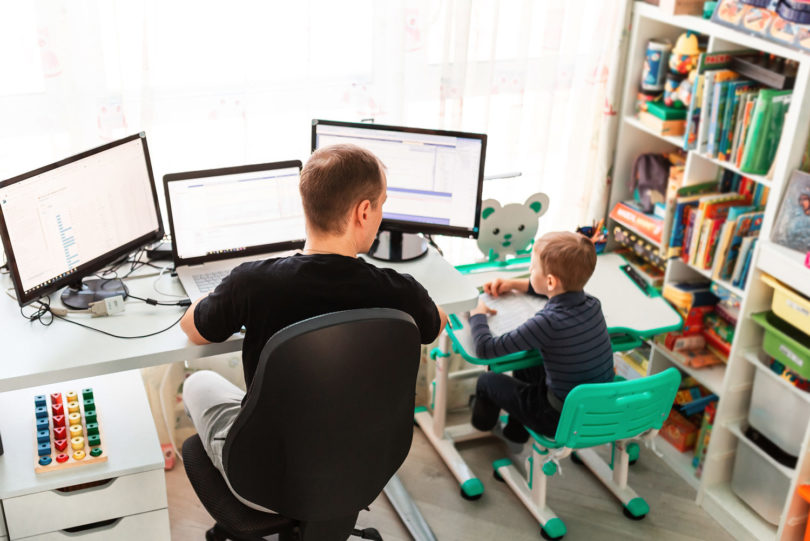Co-authored by Rick Adler and Jonathon McKay
The Secret to Winning the Talent War Hasn’t Changed: Employee Experience in the Age of COVID-19
“There are a lot of unknowns in the next year or two,” points out Jessica Wahl, executive director of the Outdoor Recreation Roundtable trade association in a recent article talking about how REI, the goliath outdoor retailer, who is selling its brand new corporate office in favor of a remote workplace. Because of COVID-19 REI’s team members began working remotely in March. What became apparent to REI’s leadership and so many other organizations is working from home can work. A Harvard Business Review’s August article went even further asserting, “A more distributed model throughout cities and geographic regions, we believe, would better support employee performance and organizational resiliency while contributing to the improvement of the urban landscape and local communities.” Really, do not get me wrong, I love everything promised in the prior sentence but is it real, sustainable, and truly elevating the associate’s experience?
Google, Siemens[1] and a host of others have announced similar plans or executed plans toward this end, working remotely. But are the statements of increased performance and resilience for example, presumably driven by a favorable rise in the employee experience real and sustainable? Do hybrid models I see every day with executes working remotely and other functions showing up at the warehouse, factory floor, or marketplace better, worse or the same?
We believe it is worth really pausing to ask some questions about remote working. To get at some data around what companies are doing, potential best practices that are working and making sure we are moving the dial on the employee experience. The Economic Policy Institute has documented how productivity gains historically have no long-term positive effect on work pay a key driver of the employee experience. So before we all close our offices and work from home OR insist everyone must return to the office, what factors should we consider and understand? What are key practices to be successful in remote work cultures, everyone in the office or some hybrid combination? Finally, if our goal before COVID, during and post COVID was securing employee loyalty through their employee experience what are the immutable truths.
 What has working remotely taught us?
What has working remotely taught us?
While it is too soon to say working remotely from home is permanent or not, what is clear we are in for more time in transition to a post-COVID-19 workplace. The majority of workers believe the traditional workplace with be out-of-date within the next ten years, with most positions being performed remotely. About two in three knowledge workers (66%) believe the traditional office setting will be obsolete for most roles by 2030. That’s just one finding of a study by Zapier.
To be fair, for many leaders and associates working remotely from home is not new. Many leaders and their teams, including us, have been working remotely since at least the 1990s. However, what is new are the critical and personal challenges faced when entire workforces “go remote” overnight and the effects this has on workplace culture. For example:
- While employee experience (EX) has been a challenge to measure and improve, working remotely and altered workplace schedules to accommodate social distancing have made the process of meaningful connections in the workplace significantly more difficult. One study found that for those who normally work remotely, 19% (almost 1 in 5) report loneliness.
- Purpose and value-driven workplaces were concerns and topics for discussion but now the envelope has been pushed, crossing boundaries into our personal life. This has shattered the cozy half-truths and is revealing the true values we hold, as businesses and individuals. Now personal safety, long and short-term vocation, family health are primary points of focus.
- As organizations invest significant time and resources to provide a remote work environment, developing a culture of accountability has proved particularly challenging. 18% of top executives say holding others accountable is their greatest weakness. Furthermore, a 2019 survey by cloud infrastructure company Digital Ocean found that 82% of remote tech workers in the U.S. felt burnt out, with 52% reporting that they work longer hours than those in the office, and 40% feeling as though they needed to contribute more than their in-office colleagues.
These challenges present a question we each need to answer: How do I address the new needs of our people and culture in a very different work environment?
 Join us for our upcoming webinar on “How to Deliver Extraordinary Employee Experiences” to learn the answer to this question.
Join us for our upcoming webinar on “How to Deliver Extraordinary Employee Experiences” to learn the answer to this question.

